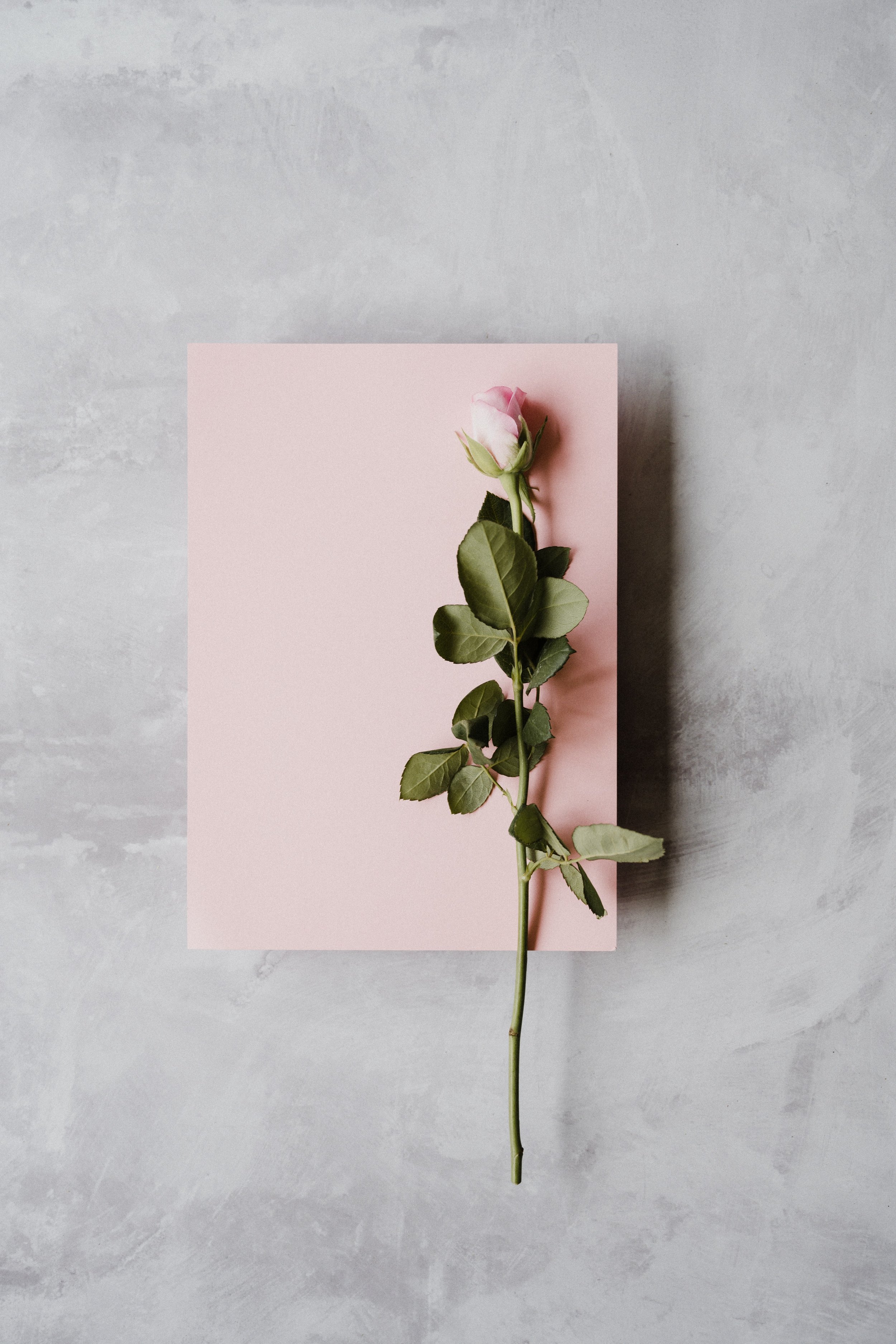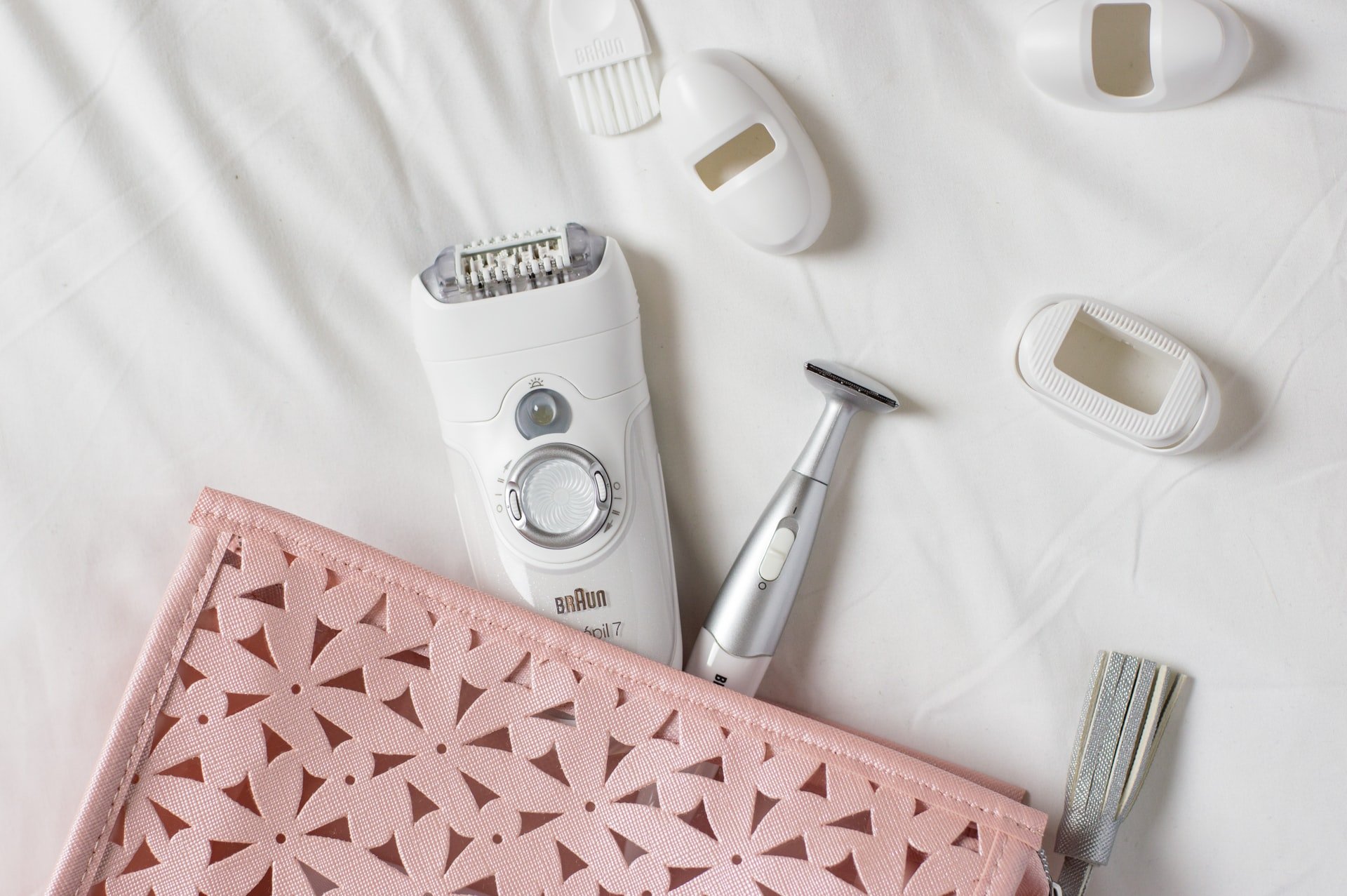Canadian-Bangladeshi couple create a turmeric-centered skincare brand to fight acne and child marriage
Written by Vatika Mohanty
Through a classic Zoom interview of the 21st century, I sat down with the co-founders of Canada-based skin care brand Yellow Beauty to talk about starting a beauty company based on an age-old South Asian wedding tradition.
Couple Jamil Bhuya and Jaz Fenton of Ottawa, Ontario founded Yellow Beauty when they noticed a lack of turmeric-based products on the market.
Since starting the company, they have released five products all with their foundational ingredient, turmeric, to work in all parts of basic skin care routines. They aim to make products that are minimal, yet beneficial to a variety of concerns, not just skin care.
Portions of each sale go toward preventing child marriages around the world.
Can you tell us a little bit about yourselves and the brand? What sets Yellow Beauty apart from other skincare brands?
Jamil Bhuya: It’s a big part of my cultural roots and history. Being from Bangladesh, we do something called the Gaye Holud. In other languages, like Hindi, it’s called the Haldi, which is referring to turmeric. That was something that I wasn't really aware of growing up here. Every single person gets to go up to the bride and groom and rub turmeric paste on their face and feed them some sweets.
There’s a lot of meaning behind it, like warding off the evil eye in Hindu culture. For us in Bangladesh, it was meant more as an exfoliant that helps the bride and groom glow so they look amazing for their perfect week because weddings are a week long in Bangladesh. And that was kind of the premise for Yellow Beauty.
When I met Jaz — we were still dating at the time, we weren’t married yet — she was having a lot of issues with her skin. Canadian winters are so dramatic. There was almost an 80 degree temperature shift in Ottawa where we grew up. There’s a lot of redness, a lot of dryness. Turmeric was just something that I suggested to her. That was the beginning of Yellow Beauty.
Jaz Fenton: I had never heard about using turmeric on your skin before. When Jamil suggested it, I was like, “OK, I’m gonna give it a try.” First, I was looking for products that use turmeric.
At the time, this would’ve been five years ago now, there wasn’t really anything sold with turmeric. There’s a lot of YouTube tutorials on how to make your own turmeric scrub or mask, but no one was selling it. So, we decided to make our own at home and play off of some of Jamil’s mom’s recommendations.
And it worked so well for me that we were like, “OK, let’s try and start an Instagram account and try to sell this product that we made.” That’s where it started.
Photo via Yellow Beauty
Jaz, has the way you use skin care products changed since you started a skin care brand?
Jaz: Before I started this, I was like most people. I would just go to the drugstore and grab a product that was supposed to work on reducing acne or breakouts. I honestly didn’t know much about it, I wasn’t that educated on natural versus unnatural. So, when we started making products ourselves, actually knowing what we’re putting in it and keeping it natural with ingredients that you can pronounce was really important to us. So from there, it’s been very eye-opening. The biggest thing for me is I’ve reduced my consumption a lot, focusing on less products that do more and switching to multi-use products. For example, our Stay Gold Facial Elixir, I use that on my skin, but you can use it on your cuticles or on the ends of your hair. We don’t need a product for every single tiny thing. That’s what inspires me the most, looking at products that can do more than one thing and can work seamlessly in your life across a bunch of areas.
Do you ever see yourselves expanding past the five products you already offer, or do you prefer to keep your business minimal?
Jaz: We have a few new products in the works, to round out our line a little bit. We never want to launch just for the sake of launching. We’re not thinking every quarter, We have to launch this many products. It’s more based on “OK, do we feel like there’s something missing in our line that we want to round it out a little bit more?” So, we are working on a few that are pretty exciting.
I think, too, we don’t want to limit our products just to skin care in the future. By skin care, I mean things that you're putting on your skin. Your skin is affected by so many different things from what you eat, to your environment, to the pillowcase that you sleep on. Going forward, we want to look at it a little bit more holistically, and see what other types of products we can introduce that are complementary to the stuff that you’re putting on your skin.
How do you balance being in a relationship and having a company together? What are some conflicts that you have faced and what have you really enjoyed about running this company together?
Jamil: We have to sometimes beat balance into submission. What can be difficult is when we’re both kind of in it. I also started and founded my own separate business as well, which Jaz helps with just as much as I help her with this one. It can be tough to create a mental space. Because what tends to happen, which I’m actually very grateful for, I know we both are, is that when one of us can get a little down or frustrated or faced with a problem, the other one can come in and save the other one or be the therapist or positive influence. That can definitely be a challenge. I think for us it’s really just focusing on creating good habits and routines, and boundaries, too. It sounds boring, but it’s just eating well, sleeping consistently, meditating, focusing on our mental health, working out and just being positive without focusing on the negatives too much. That’s been very powerful. Some of the amazing things about it, as well, you don’t have that deep-seated loneliness that could come with being at the top, especially if your partner doesn’t even feel comfortable talking about a lot of their issues.
Jaz: I think there’s a balance. We do really relate to a lot of the things that we’re going through because we both run businesses, but we also need to create boundaries, not always talking about it all the time.
Jamil: We can get each other really excited and amped up about something that might be long term or not realistic at this moment. We dream together and then be like, “Oh, we gotta come back to reality a little bit.” That’s definitely one of the pluses. Us being there for one another is really powerful. It’s helped us through a lot of stuff and a lot of growth, because we can also call each other’s s--- out a lot, which maybe other people may not do. I think that’s been really powerful for both of our growths and our personal relationships because we’re way more authentic and genuine.
What are some goals that you would like to see achieved by Yellow Beauty, and even the skin care community as a whole?
Photo via Yellow Beauty
Jaz: The biggest goal is to reach more people and spread the word a little bit more. One of our big focuses is to try and get into more retailers, like mass retailers, because that's a huge area that we haven't fully dove into. We've mainly been selling online, which is awesome; there's a lot of opportunity, but it also can be really tough. So, definitely trying to get more visibility in stores.
Jamil: One of our goals, long term, is to have more of an impact for our cause, which is bringing to light child marriages in different parts of the world. We’ve talked about being boots-on-the-ground, maybe in the future, and actually being able to source products directly from India or Bangladesh. And there are a lot of female-led initiatives where they’re creating jobs and opportunities for women so that they can bring in income and get an education.
One of the biggest things that really leads to girls being married at such a young age is poverty. Unfortunately, there’s lack of education, there’s even a lot of cultural barriers, where women are not seen as contributing to the household, financially. I know that’s changing, simply because of capital charities, government initiatives and laws. It’s a slow, steady thing. But I think it would be amazing for us to actually be boots-on-the-ground there and working directly with a co-op or a charitable initiative, and not through these large charitable organizations, because they also have their own overheads and the dollars don’t directly impact the same way.
Jaz: We’ve already shifted and we’re going to be working with a new charity that we’re really excited about that’s a little bit more local and they have a really good impact. We’re going to be launching a new set that when you purchase it, you are directly contributing to this new cause. We’re excited about that, but more on that later.
You’ve talked about child marriage. Tell us more about your charitable efforts.
Jaz: We definitely want to be more specific going forward to help end child marriage because like Jamil was saying, these large organizations, they have these large projects. When you donate, your money just goes to that large project. It’s not sectioned out very clearly. Period poverty is a huge one, access to education, transportation to get to school. We’re definitely looking into being more specific.
One thing that we’ve done in the past, and we want to ramp up again, is telling people stories about what they went through. There’s a lot of child brides who end up escaping and they just have a really good story to tell. I don’t know many places that are a platform for people to talk about that or even raise questions around. I think a lot of people don’t even know that it’s happening. Even in the U.S., it happens. So, I think it’s definitely a huge issue. And there’s so many ways that we can go about it.
Jamil: We definitely have, in the past, contributed more to micro campaigns through Girls Not Brides and other organizations. There’s an entire ecosystem of problems that lead to child marriage. There are so many issues like female sanitation products, as we’ve talked about. There are actually many girls who end up dropping out of school completely because they can’t afford those products. For them, to go to school in that condition, they’re ashamed. They end up leaving class, they get bullied and taunted. So that in itself is like a symptom that leads eventually to child marriage. We’ve contributed to a campaign where we were buying bikes for girls to get to school, because without a bike, it was like two hours one way. It was like four hours every day just to get to school. The bike basically cut that down to less than half an hour. While it may seem like a very specific cause, there’s just so many other broader symptoms that end up contributing to it. So for us, focusing on that will alleviate a lot of these things because that’s unfortunately how it works.
What have you learned over the pandemic that you had to adapt to and what have you learned in general over time that you didn’t realize when you started Yellow Beauty?
Jaz: The majority of last year, we took a little bit of a pause, and we were rethinking our brand. That took a lot of the pandemic. Because when we started, it was very bootstrapped. We were kind of just doing things on the fly as we thought about them. There wasn’t a solid plan, it was just, “what's working?” and then we would do it and adapt. It was just the two of us at the time. Now having a little bit more of a team, we took a little bit of time to take a step back, reflect on what we were doing and have a real plan for the future.
So that was a good, well-needed pause. But coming out of the pandemic, being grateful for the fact that we have our online community. That’s something that thrived during the pandemic because everyone was so isolated all the time. We knew that we had that network and that we could continue selling because a lot of businesses struggled a lot during the pandemic and had to shut down. We’re very fortunate that we could keep going during that time.
Jamil: There was definitely a lot of pivoting that had to be done. With e-commerce businesses in general, that’s always been the case. The pandemic brought in a whole new layer. Advertising costs went through the roof because now everyone’s online, everyone’s trying to create a digital storefront, everyone’s trying to advertise. TikTok was a huge shift in the social media landscape. Facebook lost a lot of credibility because of its privacy and data issues. Instagram was starting to just become a bit of a vanity platform, not that it wasn’t always one, but influencers weren’t “influencing” the same way. There’s always so much change with e-commerce. Every single year, algorithms change. The way site traffic comes in changes. We wanted to get into more mass retailers, more wholesale. We couldn’t really get into anything because everything was shut down for so long. And even a lot of those retailers, as they are opening back up, they’re hesitant to take on new brands and new products because they are recovering from such a financial burden.
I’ll say the greatest thing, the learning that came out of the pandemic, was being there for one another, and really looking at our mental health, because it’s been so rough for everyone. [We’re] grateful that we’re alive, we didn’t get sick, we didn’t have long-term damages to our health. We’re also very privileged. Many people lost their lives, much less their income or their business. Sometimes, we forget to take a step back.
What are you most proud of when it comes to Yellow Beauty?
Jamil: It’s her, for sure, 110% it’s her.
Jaz: You’re proud of me?
Jamil: I’m just so proud of her. When we first started Yellow Beauty, it felt like a team effort. And since then, it’s just been unequivocally her, to the point where — I’m gonna try not to tear up while talking about this — but she’s done so much for this business that I literally feel like I get in the way sometimes. I’m like, “Let me know if you need me,” because I feel like I’m a bit of a thorn in her side. I’m just so proud of how she’s taken and elevated this business because her standards are so high. Sometimes I’m a little bit more of the “Oh, yeah, it’s fine the way it is.” She’s really brave and I really admire that bravery because sometimes I can be a little scared. Scared of the future and anxious. Jaz, she’s my rock, but she’s also been a rock for the business. Just watching her grow has been f---ing incredible.
Jaz: Oh, my God. OK, I can’t answer anything now.
Jamil: No, go for it.
Jaz: For me, I think I’m the most proud that we’ve kept going this long. Because there’s been many times that we could have given up. I think that’s the biggest thing, putting all the other accomplishments aside, selling to a certain amount of people or, like, being in a certain amount of stores. I think persistence is what I’m most proud of.
Photo via Yellow Beauty
This interview has been edited for concision and clarity.
This article was originally published on Parachute Media









